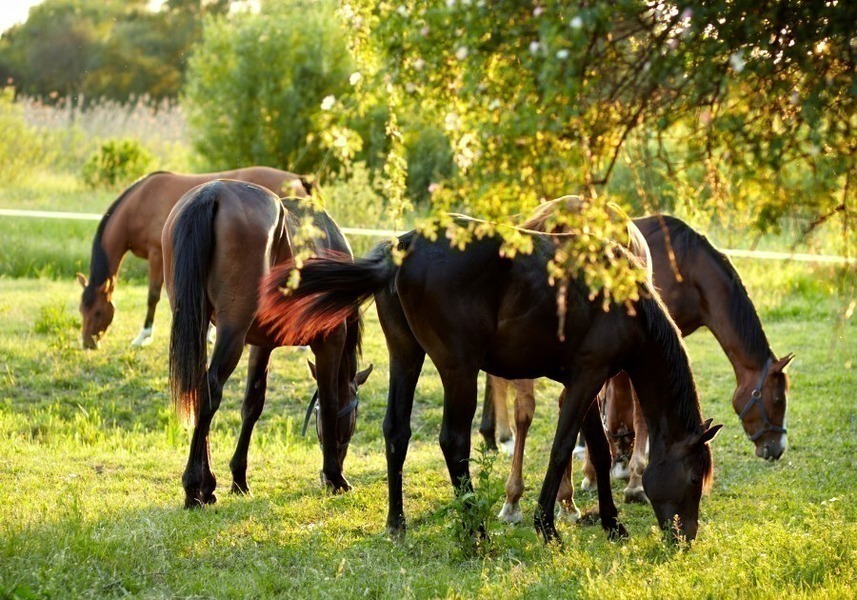416 views
Summer Grazing Tips: How to Keep Your Horse Happy and Healthy in the Heat
Long sunny days, lush green fields, and plenty of time outdoors—summer can be a brilliant season for our horses. But as any horse owner knows, warm weather and rich grazing bring their own set of challenges. From managing sugar-rich grass to keeping flies at bay, a few smart strategies can make all the difference.
Here’s a down-to-earth guide to summer grazing, especially for UK horse owners who know how unpredictable the season can be.
1. Keep an Eye on That Grass
Summer grass looks inviting—but it’s often packed with sugars that can pile on the pounds or even trigger laminitis, especially in good-doers and native breeds.
Strip grazing with electric fencing works wonders for portion control.
Grazing muzzles are another useful tool—horses still get turnout, but with a calorie cap.
Weekly weight and condition checks are a must. If your horse starts looking a little round, it’s time to adjust.
2. Sunshine is Lovely—But Shade is Essential
On scorching days, your horse will need somewhere to escape the sun.
Natural shade (trees, tall hedges) is ideal, but a well-placed field shelter works just as well.
Pink noses? Pop on a fly mask with UV protection or use a safe-for-horses sun cream—yes, even horses get sunburn!
3. Water, Water, and More Water
Dehydration can sneak up fast in warm weather. Make it a habit to:
- Check and clean troughs daily—algae loves the heat.
- Make sure there’s always plenty of fresh water available. Horses can double their intake on hot days!
4. Salt and Electrolytes Matter
Sweating isn’t just about moisture—it also drains essential minerals.
A plain salt lick in the field or stable covers the basics.
If your horse is working hard or sweating a lot, electrolyte supplements can help them stay in balance.
5. Do a Weed Walk
Summer is prime time for poisonous plants like ragwort to rear their heads.
Regularly walk your fields and remove anything suspect (ragwort, buttercups, foxglove).
Always wear gloves when pulling—especially with ragwort.
After topping or mowing, do a sweep for newly exposed risks.
6. Don’t Let Flies Ruin a Good Day
Few things annoy a horse more than buzzing, biting flies.
Use fly masks, rugs, and a good repellent—daily applications are often necessary.
Clean up droppings regularly to cut down on fly breeding grounds.
7. Look After Those Hooves
Dry ground can lead to brittle, cracked hooves—just as tricky as mud.
Stick to regular farrier visits, even if hooves “look fine.”
Hoof moisturisers can help, but always follow your farrier’s advice.
Don’t forget to pick hooves daily—summer stones can cause real discomfort.
8. Rotate, Rest, Repeat
Rotating grazing areas helps pasture recover and keeps worm burdens in check.
Rest fields when possible.
Faecal egg counts can guide your worming plan—targeted treatment is better for your horse and your pasture.
Final thoughts...
Summer grazing can be a real joy—for both horse and rider—when it’s managed thoughtfully. With a little prep and regular checks, you’ll help your horse stay cool, comfortable, and healthy all season long.
After all, there’s nothing better than watching a contented horse dozing in the shade after a good graze. 🌞🐴




0 Comments